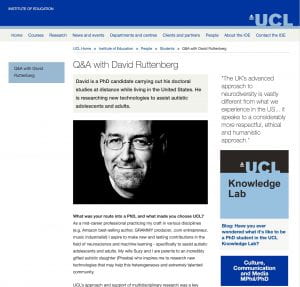In addition to my PhD endeavors and responsibilities within both the Knowledge Lab and Development Diversity Lab, I am also a UCL Student Trustee, Board of Governance member and Post Graduate Student Representative. As I actively stand for students throughout UCL (both on the ground in London and internationally at a distance), I want to use this space today in an effort to update my constituents on the following as it relates to academic matters, specifically:
- Our student union (SU) officers have been diligently working with UCL administrators to carve out an Extraordinary Extenuating Circumstances (EEC) procedure. The union hopes that this information is robust enough to cover almost all circumstances, however, you are welcome to reply with your questions and comments at reps@ucl.ac.uk.
- Similarly, the SU has created guidance detailing Illness and Unexpected Disruptions to Your Exam or Assessment information. While many Post-Graduate Research (PGR) students will not be affected by assessment, per se, there is important information related to illnesses that you may want to consider.
As was mentioned in a memo to UCL Academic Reps, Ashley Slanina-Davies (UCL Students’ Union Education Officer) offered that “we are meeting with UCL to represent the interests of students and raise student concerns every single hour of the day and if you have any concerns, have feedback from your peers to pass on or think there is something that can be improved with information being communicated, please do get in touch with me and the team at the Union.


